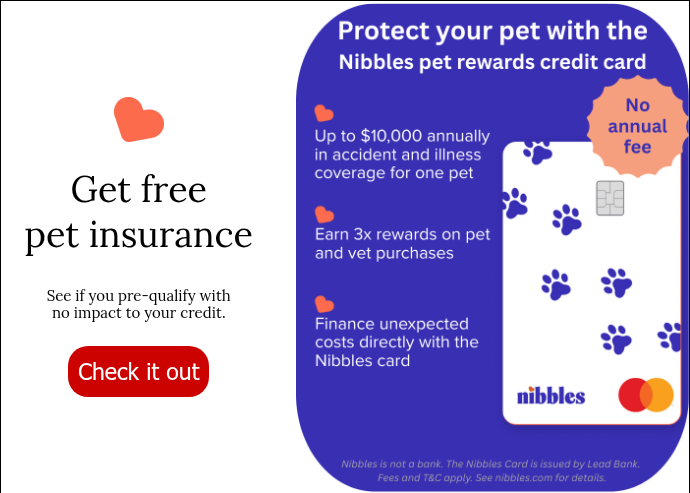 If you bring your dog to the veterinarian for vomiting and diarrhea, they may be diagnosed with gastroenteritis.
If you bring your dog to the veterinarian for vomiting and diarrhea, they may be diagnosed with gastroenteritis.
You may be wondering precisely what that diagnosis means and how easily it can be treated and prevented in the future.
Gastroenteritis can come on suddenly and sort itself out reasonably quickly with veterinary and at-home care, or it can last weeks or even years.
We're here to help you understand this digestive issue and get your dog feeling better.
Skip to section:
What Is Gastroenteritis in Dogs
One study, that collected a year’s worth of data, found that 12.4 % of dogs were affected by gastroenteritis.
But what exactly is gastroenteritis?
Gastroenteritis is a big and complicated-sounding medical term. But if one breaks it down into its parts, it becomes easy to understand.
‘Gastro’ in medical terminology is the prefix used to refer to the stomach.
‘Entero’ in medical terminology is the prefix used to refer to the intestines.
‘Itis’ is a medical suffix that is used to indicate inflammation.
When we put all three parts together, gastroenteritis simply means inflammation of the lining of the stomach and intestines.
Gastroenteritis can be acute (sudden) or chronic (lasting more than 3 weeks, but potentially as long as a month or even years).

Causes of Gastroenteritis in Dogs
It can be a result of any of the following causes:
- Bacterial (Salmonella, E.Coli, Campylobacter, etc.) or fungal infection (Blastomycosis, Cryptococcosis, Coccidiomycosis [Valley Fever], etc.) from consuming contaminated food or water
- Changes in gut microbiome
- Change in diet (planned or unplanned!)
- Gastrointestinal cancers
- Gastrointestinal ulcers
- Genetic disease or predisposition
- Dog breeds that have a genetic predisposition to gastrointestinal issues (such as hemorrhagic gastroenteritis, inflammatory bowel disease, protein-losing enteropathies) include Basenji, Boxer, Chinese Shae Pei, German Shepherd, Irish Setter, Maltese, Miniature Schnauzer, Miniature Pinscher, Miniature Poodle, Norwegian Lundehund, Rottweiler, Soft-coated Wheaten Terrier, and Yorkshire Terrier
- Food allergies or intolerances
- Foreign bodies (eating something they shouldn't like, such as a sock)
- Ingestion of spoiled or raw foods
- Intestinal obstructions
- Intestinal parasites
- Medications such as antibiotics or nonsteroidal anti-inflammatory drugs
- Medical conditions such as pancreatitis, kidney disease, or liver disease
- Stress
- Toxin ingestion
- Viruses (distemper, parvovirus)
AHDS
The condition is termed hemorrhagic gastroenteritis when blood is present in the diarrhea. However, recently the name was changed to acute hemorrhagic diarrhea syndrome (AHDS).

Breeds Most-Often Affected by Gastroenteritis
Gastroenteritis can affect dogs of all ages and breeds. However, one study found that unvaccinated, non-dewormed, mixed-breed, male dogs less than one year of age were affected more commonly with gastroenteritis.
Symptoms and Clinical Signs of Gastroenteritis in Dogs
Gastroenteritis typically involves vomiting (possibly foamy and yellowish), diarrhea (ranging from mildly soft to watery), or a combination of both.
However, your dog may also have other symptoms such as:
- Abdominal discomfort or pain
- Decreased appetite
- Dehydration
- Gagging or dry heaving after eating or drinking
- Lethargy
- Nausea, which is characterized by frequent swallowing and drooling
- Mild fever
- Restlessness
How Gastroenteritis Is Diagnosed in Dogs
As mentioned above, gastroenteritis can have many causes. Therefore, it is necessary for your veterinarian to perform a thorough and complete diagnostic workup. Knowing the cause will determine the best treatment options.
Obtaining a detailed medical history on your dog is a critical component of diagnosing gastroenteritis. You will need to be prepared to answer some of the following questions:
- What is your dog’s current diet, and how long have you been feeding it?
- How much and how often do you feed your dog?
- What types of treats does your dog get?
- Does your dog get any human foods?
- What has your dog eaten and drunk prior to developing symptoms?
- Have you given your dog any new foods or treats?
- Have you given your dog any new medications or supplements in the last month?
- Has your dog been exposed to any new animals, people, or places?
- Has your dog been stressed or anxious?
- Has your dog been exposed to any pesticides, cleaning agents, medications, or anything new?
- Has your dog had any other illnesses or symptoms in the last month or two?
- Has your dog ever had a history of vomiting and/or diarrhea? If so, was the cause identified, and how were they treated?
Once a detailed history is obtained, your veterinarian will perform a thorough physical examination to evaluate for dehydration, abdominal discomfort, bloating, or other abnormalities.
Based on the history and examination, your veterinarian will recommend one or more of the following diagnostic tests to determine the exact cause of the gastroenteritis.
- Complete blood count
- Blood chemistry
- Urinalysis
- Stool analysis
- Abdominal X-rays
- Abdominal ultrasound

Can Dogs Get Gastroenteritis from Humans?
Studies indicate that dogs can get gastroenteritis from infected humans, such as norovirus or Campylobacter. It is usually spread when dogs come into contact with contaminated poop, saliva, or vomit.
How Gastroenteritis Is Treated in Dogs
If an underlying cause is found for your dog’s gastroenteritis, it is important for it to be treated. For example, for bacterial gastroenteritis, your dog will be given antibiotics, or if intestinal parasites are found, your dog will be given a dewormer.
In some cases, the cause of the gastroenteritis cannot be determined.In these cases, your veterinarian will prescribe treatment for the most likely cause based on clinical signs and medical history, as well as recommend supportive care.

Fluids
Rehydration and restoring electrolyte balance are key factors in treating gastroenteritis. Preventive Vet dog Clover, in the photo above, is getting IV fluids after vomiting for over 24 hours. She was diagnosed with mild gastroenteritis.
The severity of both the vomiting and diarrhea will determine whether fluid replacement will be done orally, subcutaneously (fluids administered under the skin), or intravenously.
If your dog is severely dehydrated, they may need to be hospitalized for a few days.
Dietary Management
Nutritional management is important when treating dogs with gastroenteritis.
Your veterinarian may recommend a fasting period – withholding food for 12 to 24 hours.
During this period, only offer small amounts of water frequently. If you allow your dog to drink too much water too fast, this may cause vomiting.
Following the fasting period, you will slowly introduce small, frequent meals (3 to 6 per day) of a diet that is GI-friendly (low-fat, low-fiber, and highly digestible).
Your veterinarian may prescribe a GI diet such as Purina EN (canned or dry), Royal Canin Gastrointestinal Dog Food (canned or dry), or Hill’s i/d (canned or dry). Another option is for you to prepare a bland diet at home, which may include plain, boiled, boneless, skinless chicken and plain white rice.
NOTE: While your dog is on a bland diet, DO NOT feed them any other foods or treats.
Your dog will remain on a bland diet for a few days following complete resolution of ALL their symptoms. If you switch back to their regular diet too quickly, their symptoms may return.
When you transition back to their regular diet from the bland diet, do so slowly and gradually. Do not offer treats until they have fully transitioned to their old diet and no symptoms are present.
Stress Management
Since stress can cause gastroenteritis, try avoiding or lessening stress and its triggers. To help lessen stress, be sure your dog is getting adequate exercise as well as mental enrichment. You can also use calming pheromones and treats, like Calm & Confident or Solliquin (make sure to choose the right treat size for the size of your dog).
Medical Management
Some other gastroenteritis treatments your veterinarian may recommend include:
- Antiemetics to stop or control vomiting
- Anti-diarrheal medications
- NOTE: DO NOT administer over-the-counter human anti-diarrheal medications to your dog unless instructed to do so by your veterinarian, as this can cause more harm than good.
- Gastrointestinal protectants to protect against stomach ulcers
- Gas relief medications to help break down gas bubbles
- Probiotics to help rebalance their gut microbiome
- NOTE: For dogs that have stress-induced gastroenteritis, use Purina FortiFlora Calm.
Following the treatment of any underlying causes and rehydration, most dogs recover quickly from acute cases of gastroenteritis. However, for this to occur, early recognition and treatment are essential.
Treatment and management of chronic gastritis may require hospitalization as well as long-term management, such as dietary restrictions, medications, and avoiding or lessening potential triggers such as stress.
Risks of Not Effectively Treating Gastroenteritis?
If left untreated or not treated effectively, your dog could develop life-threatening complications, which can include:
- Severe dehydration, which could lead to kidney failure if not addressed, and potentially death.
- Hemorrhagic gastroenteritis, which can become severe and fatal, as it can lead to severe fluid loss and shock.
- Hypovolemic shock, which occurs when severe dehydration results in the body not having enough blood to circulate, causing poor blood flow to tissues and organs.
- Sepsis can occur if the gastroenteritis is the result of a bacterial infection, which, if not treated, can spread from the intestines into the bloodstream.
- Chronic issues, such as pancreatitis or intestinal obstruction, can occur if gastroenteritis is not treated or properly managed.
Can Your Dog Die of Gastroenteritis?
In short, if your dog is not treated or managed properly for gastroenteritis, they can die.

By understanding the potential causes or triggers of gastroenteritis, you can prevent or reduce its recurrence, benefiting both of you. If you have any questions about this condition, feel free to ask them in the comments section below.




